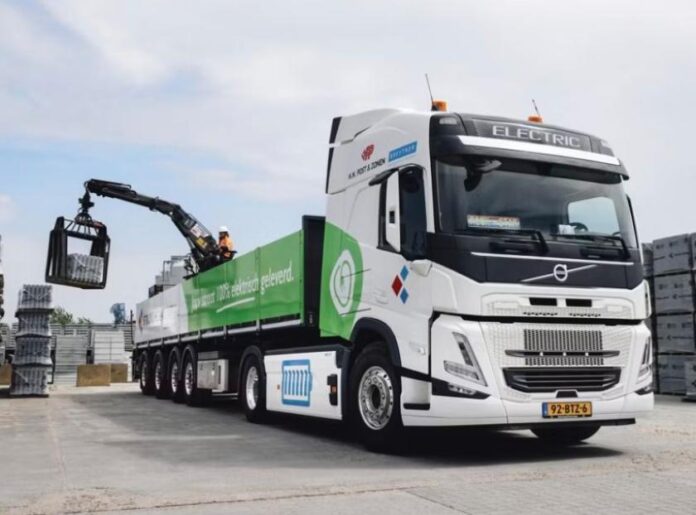Volvo Trucks announced delivery of over 5,000 battery-electric trucks across 50 countries marking a major achievement in the transition toward zero-emission transport.
Since the company’s foray into electric trucking in 2019, the cumulative deployment of its vehicles and the nearly 170 million kilometers covered in commercial operations reflect growing confidence in electric mobility, particularly in logistics and urban transport.
This milestone highlights Volvo’s sustained commitment to electrification and its strategic advantage as an early mover in the market, with eight electric truck models now in active production. Volvo Trucks does not reveal its investment in electric vehicle business.
In 2024, Volvo Trucks became the market leader in the European heavy truck segment with a 17.9 percent market share and expanded its market presence in 25 countries. The Volvo FH Aero won the 2025 Green Truck award, and the Volvo FH and FM models earned five-star ratings in Euro NCAP safety tests.
Volvo Trucks is making major investments in its electric vehicle (EV) business, targeting 50 percent of global sales to be electric by 2030 and achieving net-zero emissions by 2040. The company already holds a strong position in the electric heavy-duty truck market, especially in Europe and North America.
The company’s success is rooted not only in its technological offerings but also in its holistic approach to supporting electric fleet adoption. By addressing key customer concerns such as energy optimization, financing, servicing, and charging infrastructure, Volvo is lowering the barrier to entry for transport firms and enabling them to shift toward sustainable operations without compromising on efficiency or profitability. The added benefits of reduced noise and improved driver comfort further strengthen the appeal of electric trucks in densely populated and regulated urban environments.
Volvo’s current electric lineup caters to various commercial needs, from city distribution to construction and refuse collection, and is actively operating in major markets including Germany, the Netherlands, the U.S., Norway, and Sweden. This diversity in application illustrates the scalability of electric technology across different sectors and geographies. It also reflects a maturing electric vehicle ecosystem in which reliability, performance, and customer return rates are key indicators of long-term viability.
Looking ahead, Volvo’s three-path strategy — encompassing battery electric, fuel cell electric, and renewable-fuel-powered combustion engines — reinforces its pragmatic stance on decarbonization. Rather than committing to a single technology, Volvo is betting on a flexible approach that can adapt to regional infrastructure developments, fuel availability, and policy frameworks.
With the 2040 net-zero emissions target in sight, Volvo is positioning itself as a leader not just in vehicle manufacturing but in sustainable transport system design. As regulatory demands tighten and customer awareness grows, this multi-pronged strategy could offer a critical competitive edge in the global race to decarbonize freight.
GreentechLead.com News Desk

